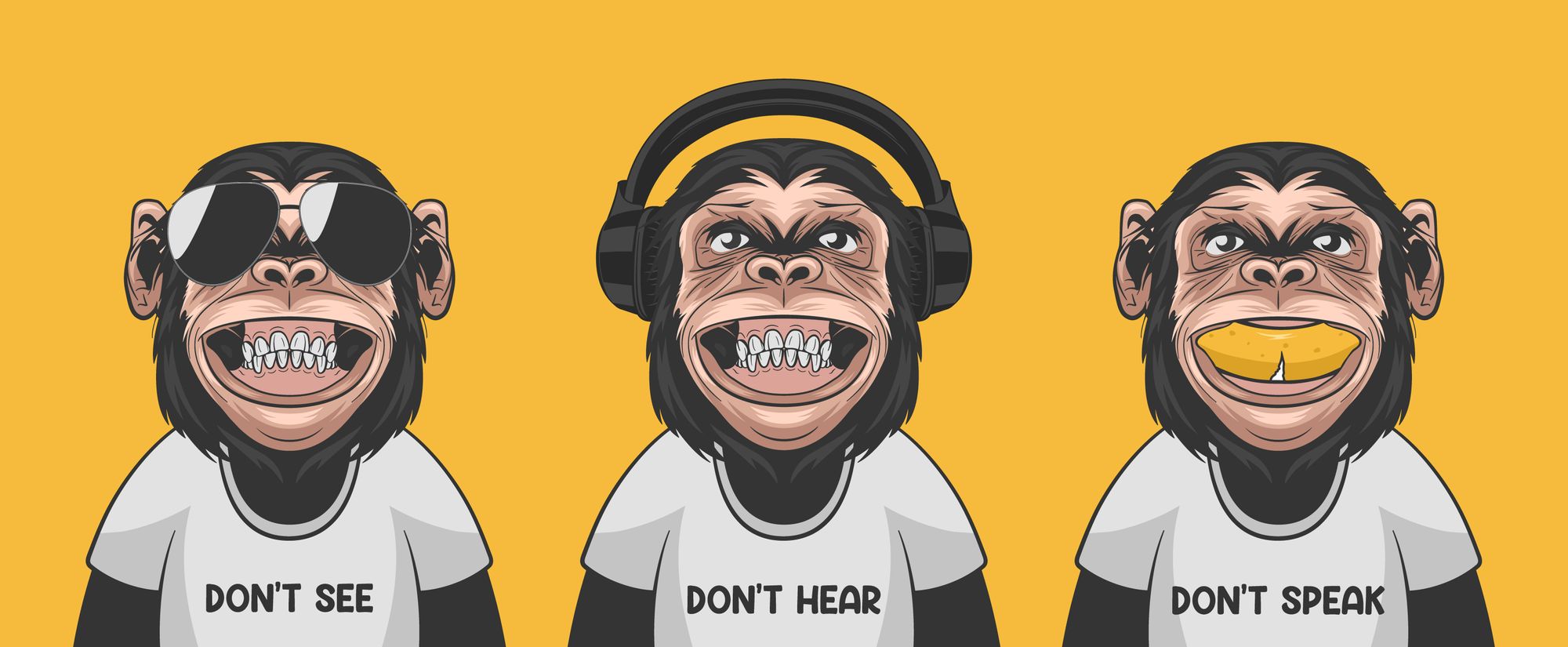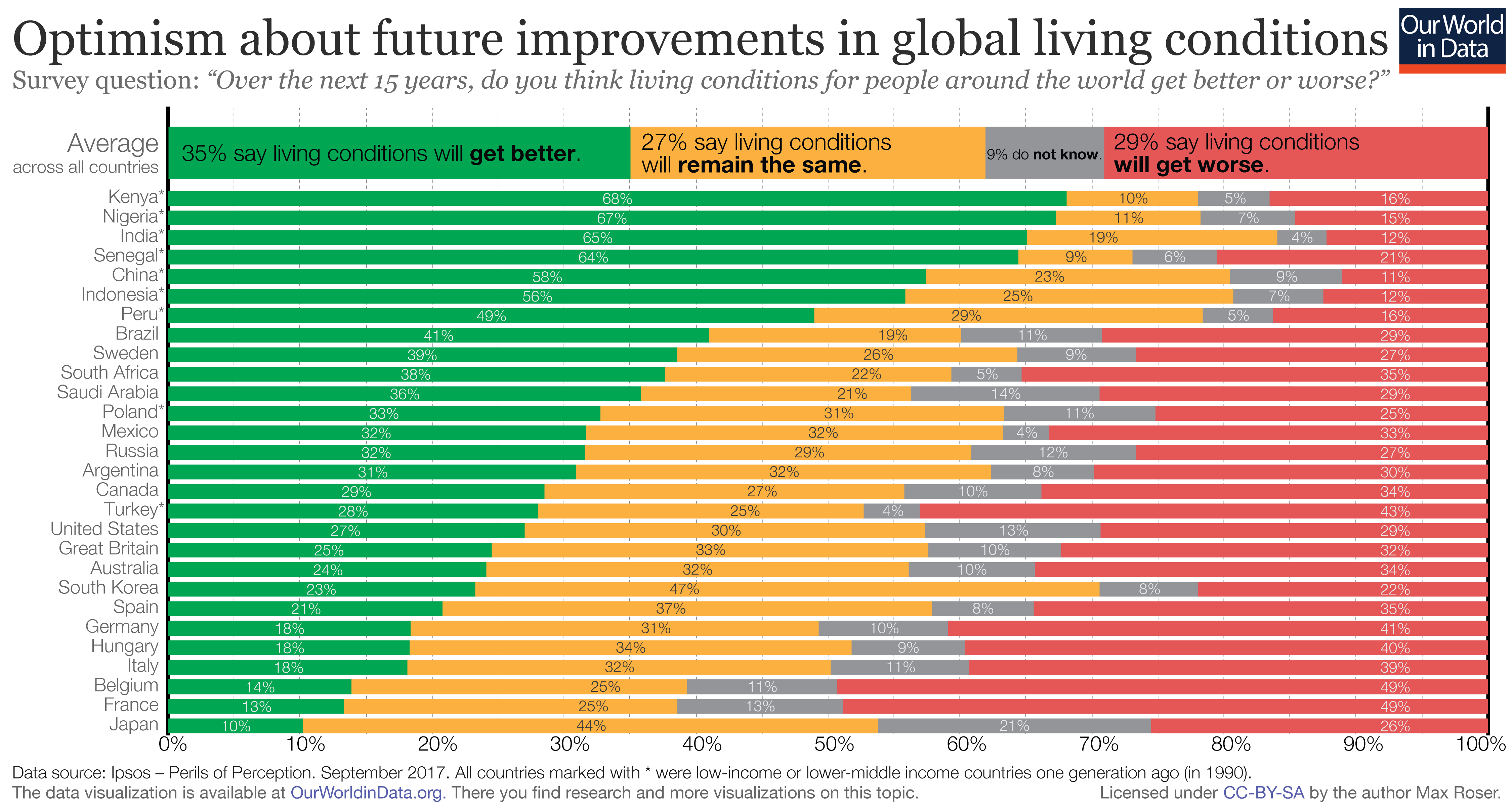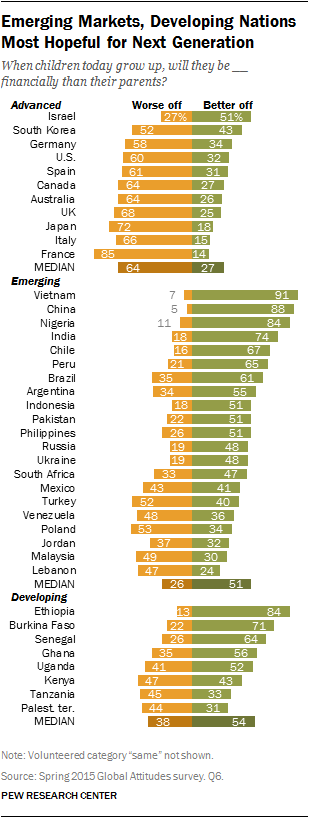
🙈 Why are people so pessimistic about the future? Part I - wrong about the facts
A majority of people in the richest countries are pessimistic about the future. One reason is that they know less about humanity's progress than chimpanzees.
Share this story!
There is a widespread lack of knowledge about humanity's fast, and positive, progress.
Professor Hans Rosling discovered this when his students refused to believe him when he showed them statistics on how rapidly poverty was decreasing and literacy increased.
This was unexpected because getting into that education required the highest grades and the course was in global health. Students like that should have knowledge about the state of the world.

Can the professors beat the chimps?
To get a clearer picture, he subjected them to "The Chimpanzee Test." He put together five pairs of countries where one country had a twice as high child mortality rate as the other and asked the students to choose which country in each pair they thought had the highest.
You can test yourself:
Sri Lanka or Turkey?
Poland or South Korea?
Malaysia or Russia?
Pakistan or Vietnam?
Thailand or South Africa?
If you were to write the names of the countries on bananas and ask chimpanzees to choose, they would on average get 2.5 right out of 5 possible.
The students got an average of 1.8.
Rosling also gave the test to the professors at Karolinska. The ones who each year awards the Nobel Prize in medicine. They got 2.4. Almost as good as the chimps, but only almost.
The correct answers were Turkey, Poland, Russia, Pakistan, and South Africa. They had at least twice the infant mortality rate as Sri Lanka, South Korea, Malaysia, Vietnam, and Thailand.
Did you have a better result than the monkeys?
If you, on average, have a worse result than just guessing – worse than random – it means you have a skewed view of the world. Your knowledge about the world is so poor that you do not guess, but answer incorrectly.
The students and the professors’ ignorance led him to found the Gapminder Foundation.

How do other people compare to chimps? Gapminder has tested the populations of several countries. Twelve questions with three options for each question. An average chimp would get four out of twelve right.
In the 2017 test, only ten percent had better results than the monkeys.
- 90 percent would have gotten better results if they hadn’t even read the questions and just guessed.
- As many as 15 percents were wrong about every one of the twelve questions.
- Zero percent had all the right answers.
- The chimps didn’t lose in any of the 12 questions.
- Of the three options, the most negative answer was usually the most common.
- On the issue of extreme poverty, most people believe it has doubled over the past twenty years when it has in fact fallen dramatically.
If one does not keep track of what fantastic progress humanity has had in recent decades and instead believes that things are getting worse, then it is of course pretty natural to be pessimistic about the future.
Hans Rosling tragically passed away in 2017, only 68 years old, but he left behind a rich flora of fantastic TED talks, funny interviews, the book Factfulness, the Gapminder Foundation that Ola and Anna continue to run and a number of people inspired by him. One of these heirs is Max Roser. He runs Our World In Data, which is bursting with statistics on the state of the world.
In rich countries pessimists are in majority
In a post, Wrong About the World, he shows that more than half of those surveyed believe that the world as a whole will be worse or unchanged in the next 15 years. Developed countries usually have the largest group of pessimists. Only a few percents think the future will be better. Japan is at the bottom, closely followed by France, Belgium and Italy.

It is in countries with a lower standard of living where you can find the optimists. Indonesia, China, Senegal, India, Nigeria and Kenya are at the top. 68 percent of Kenyans believe the world will improve in the next 15 years, compared to 10 percent of Japanese.

Facts will make you more optimistic
There is a clear correlation between the knowledge of facts and optimism. The more you know about the state of the world and its progress, the more positive your view of the future will be. The less knowledge you have, the more negative view of the future.
In the same survey as above, where people were asked about their views on development over the next 15 years, their knowledge of the world was also measured. Those who had zero correct answers about the state of the world were the greatest pessimists about its future. Only 17 percent of that group thought the world would be better, compared to 62 percent of the group that had the highest number of correct answers.
It makes sense. If you think the world is getting worse, and you are maybe convinced that it has been so for a long time, why would it suddenly get so much better in the next 15 years? And if you see what great progress has been made, over a long period of time, but especially in recent decades, then it is reasonable to assume that this can continue.
Fact-based optimism
That is why it is so important to spread fact-based optimistic news. People have gotten their skewed view of reality because there is generally too much focus on problems and misery.
One should not ignore problems or try to put a positive spin on them, nor ignore successes and try to put a negative spin on good news.
Fact-based optimism must be everywhere. In the news but also in movies, books, TV shows, political debates and when we talk to our families around the kitchen table.
Mathias Sundin
Editor-in-Chief
By becoming a premium supporter, you help in the creation and sharing of fact-based optimistic news all over the world.


